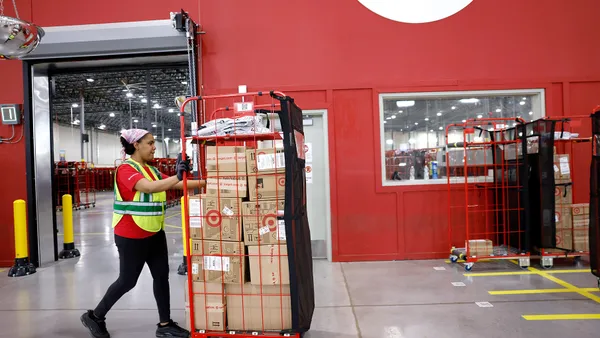Dive Brief:
- Wilson president and CEO Joe Dudy will step down from his position Aug. 31 after a 30-year career with the brand, parent company Amer Sports announced Tuesday.
- Dudy is leaving to “pursue new endeavors outside the company” but will remain as an adviser through March.
- While the company searches for a permanent successor, Amer Sports CFO Andrew Page will serve as interim president and CEO of Wilson and the ball and racquet sports segment, effective Sept. 1, while continuing his CFO duties.
Dive Insight:
Dudy is exiting the top post at Wilson after spending decades with the brand.
“On behalf of the Amer Sports executive committee and global leadership team, we want to warmly thank Joe for his many valuable contributions to Wilson and Amer Sports over the past 30 years,” James Zheng, CEO of Amer Sports, said in a statement.
Dudy oversaw Wilson’s expansion over the past several years as it focused on enhancing its DTC business, which included the opening of its own retail stores. Wilson opened its first store in 2021 in Chicago’s Gold Coast neighborhood and has since grown to 17 locations nationwide.
“It’s with a heavy heart that I’m officially stepping down as CEO of Wilson,” Dudy wrote on LinkedIn this week. “I didn’t realize how much my leadership style would impact people throughout the organization. More than anything, I’m going to miss the amazing team at Wilson. Along the way, I’ve learned how important it is to embrace change.”
The announcement came as Amer Sports reported second quarter earnings. The company’s overall revenue increased 23% year over year to $1.2 billion. Its ball and racquet sports segment, which includes Wilson, grew 11% to $314 million, while its technical apparel segment increased 23% and its outdoor performance segment increased 35%. Operating profit was $43.7 million, compared to a loss last year of $8.5 million. Net income rose to $22.4 million from a loss of $1.8 million in the year-ago period.
The company — which also houses brands Arc’teryx, Salomon and Atomic — said that assuming tariffs from imports of Chinese goods remain at the current 30% level, it projects full-year revenue to increase 20% to 21%.












